WHAT'S THE FORMAT!?!?
Here are some thoughts written for a question asked by the International Theatresports Institute, December 2019.
What is your process for creating new performance formats? How do you develop the initial idea, and how to you work on it to make it stage worthy?
One of the first questions performers ask when they are invited to perform is WHAT’S THE FORMAT? Is it a competition? Is it long or short form? Is it something new?
It’s mostly about WHO we perform with and not WHAT we perform BUT there are some formats that make you giddy to play and others that seem to work against the spirit that improvisers spend their lives fostering.
The idea of FORMATs has become a generalized and vague idea. “If it’s a show, it’s a format.” No, it isn’t.
Often, improvisation formats are little more than a superficial idea with no thought given to the audience experience. A good format is more.
FAIRY TALES AND WESTERNS ARE GENRES. They aren’t formats BUT…genres can be part of your format.
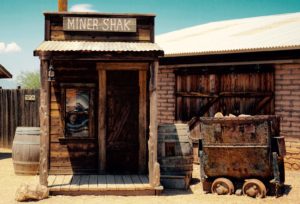 There are many reasons to create and develop a format. Practical reasons to incorporate your company, Artistic reasons to develop concepts and even Financial reasons to engage an audience are some motivators. And be careful about shows in the style of genres or great writers as formats. Generally, genres and styles are not formats. They are concepts that cover the structure like paint. They aren’t structural in the way a ‘- format is.
There are many reasons to create and develop a format. Practical reasons to incorporate your company, Artistic reasons to develop concepts and even Financial reasons to engage an audience are some motivators. And be careful about shows in the style of genres or great writers as formats. Generally, genres and styles are not formats. They are concepts that cover the structure like paint. They aren’t structural in the way a ‘- format is.
Concept, Premise, Format
A CONCEPT
A CONCEPT is just an idea –
“Hey, Let’s do a format where we are time travelers through history”
– IT’S NOT A FORMAT.
Concepts and Premises are often weakly structured (if there’s any structure at all).
These ideas often have colourful or interesting presentation without attention to the content.
A PREMISE -
The premise takes the idea further –
“OK, Let’s do a format where we are historians. We interview the audience about their lives and do scenes from the historical time that their story inspires us with.”
Interesting Premise buuuuuuuut, not really a format yet.
I’m not saying that concepts and premises aren’t worth doing but, they don’t have the same structural stability as formats.
A FORMAT -
The Format is a structure or framework that the premise and content lives within.
My hope is that a good format contains:
– Elegant structure that addresses a need for the group who uses it,
– Mechanisms that protect the audience and offers narrative and entertainment value,
– Freedom for the performers to IMPROVISE
WHY?
POSSIBLE REASONS FOR DEVELOPING A FORMAT INCLUDE:
– Your company or group needs some form of structure for their development. This was the case for Keith Johnstone’s MAESTRO. There were a lot of performers of varying abilities who were hoping for stage time. The format takes care of their needs and the audience who pays to see the show.
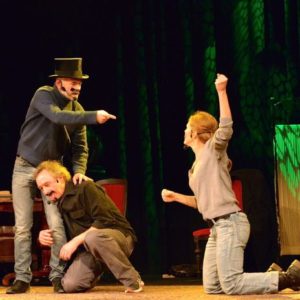
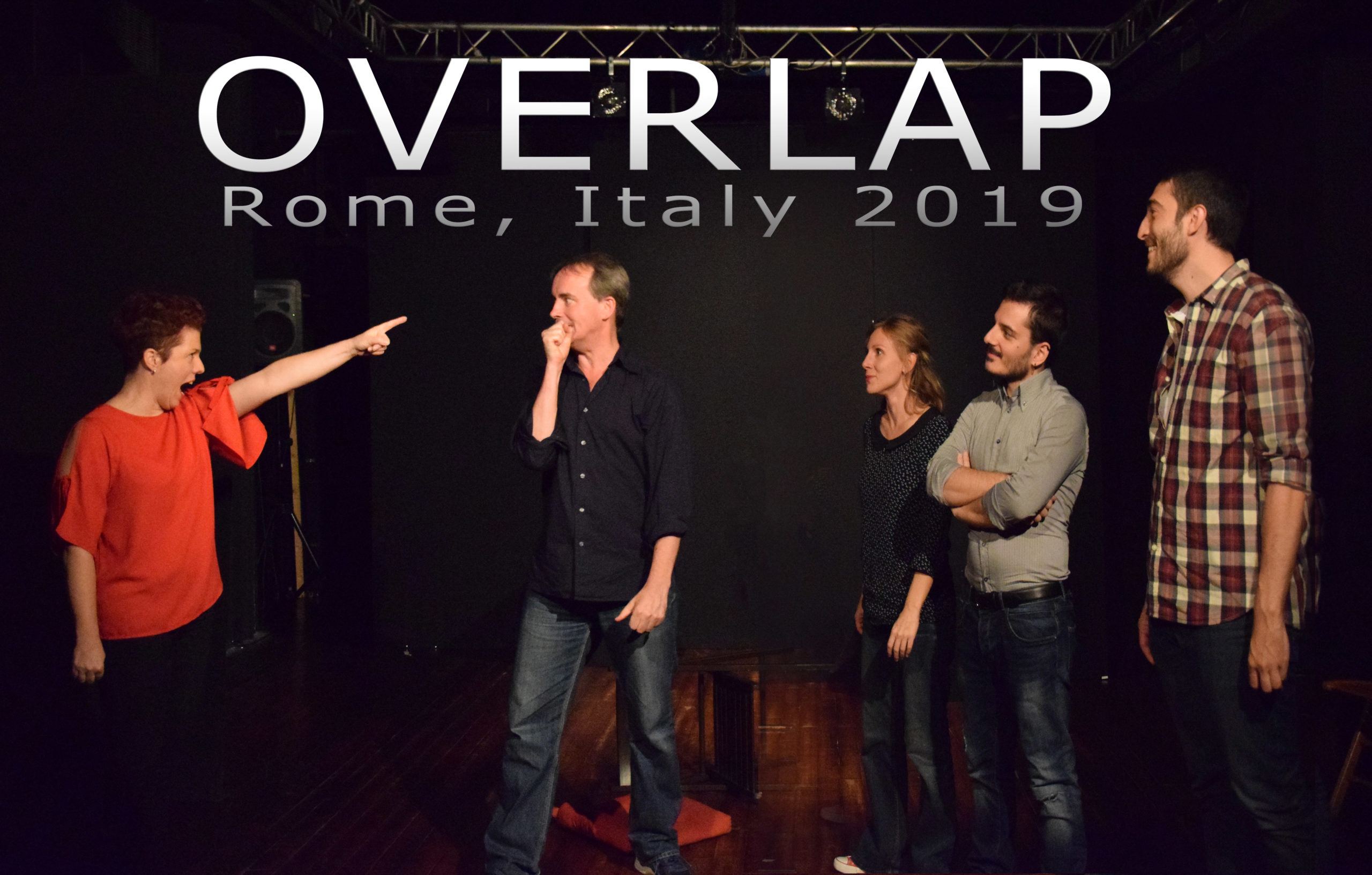
– Furthering your passions and Interests. Disappointed with performers disconnection with audiences, I wanted to bring the audience and improvisers into stronger connection and so I developed a format called OVERLAP.
– Playing upon your strengths and talents to push yourselves and address an audience need– The Colombian, Canadian combo “Speechless, performs a silent, physical show with live DJ composing the soundtrack on the fly in their self titled SPEECHLESS. It evolved partly to address the language issue of improvisers traveling globally where they would not be understood with limited words.

Initial ideas for developing a format…
…are EASY – relatively speaking. Use what you know.
- What are you interested in?
- What pisses you off?
- What motivates you at this point in your development (life or artistically)?
Start with the point of your passions and go from there… If it’s important enough to anger you, make you laugh, or move you beyond a state of “that’s an OK idea”, then that’s a good first step.
But remember, this initial step is generally not a solo thing. Usually, you improvise with partners or a group in mind. THEY are your first step. Check in on their strengths and weaknesses. That’s the initial step I often use.
Let's Create
Here’s the rough progression for an hypothetical format based on the TIME TRAVEL THROUGH HISTORY example we’ve been playing with above. (no, it’s not a format I’ve tried before. Just making this up as we go along.)
After a little thought about the initial concept, I’m going to expand the idea into a thematic statement and a brief premise:
ALL OF OUR STORIES ARE SHARED & REPEATED THROUGHOUT THE EXISTENCE OF OUR SPECIES. We have a direct connection to Ancient Egyptians, Galileo and his explorations, any child, anywhere at any time.
The show will use the stories from our audience and transport them to another point in time showing how stories existed then and how life might have been different.
ROUGH STEPS IN THE FORMAT
Part 1 – Interview audience members on various aspects of their lives including concerns and actions. (The is base of our information for scenes)
Part 2 – Agree upon a time period that seems latent in the various discussions to base the show on. (The Promise of what period in time will affect the stories)
Part 3 – “HISTORIANS” are the Directors who help the performers create scenes as we establish the era, and use details of the audience’s lives as we overlap our stories with another time in history.
Part 4 – Using good story technique, the performers and Historian (directors) move the story forward within the era that was promised to the audience. Shakespearean- coming of age. Cavemen – fight for equality. Renaissance – Self Realization.
The Format will be called:
A MOMENT OF YOUR TIME.
It’s rough right now. That’s OK. You don’t have to get it right, right away. Be flexible in removing what doesn’t work and inserting other pieces to give the structure more stability.
This is the broad stroke part of creation where you just get it out of your head.
THEN…
How to make it stage-worthy:
Figure out what you need. Every format demands specific skills. Our example format calls for an interest in history and some historical knowledge. It would also be useful to have directors with some historical knowledge.
These observations give me starting points on how to workshop the idea.
WORKSHOP AND EXPLORE
As one style of development, you might initially consider NOT telling everyone everything about the format.
It’s overwhelming for the performer to try to understand all of the structural points when they should just be present with what each moment needs. They’ll understand the full picture eventually.
Encourage performers to think in the moment with each element of the idea.
- Play games that help people draw out stories from the audience (the interview).
- Play with scene styles from history.
- Play with performers telling their own stories in different time periods, changing the concepts that are relevant etc etc…
- Then, put the pieces together.
- Explore the roles – What can the historian do to move the story forward.
- Ask these (and more) questions: where does the format feel weak? What is the audience asking? What inspires us?
It won’t be your answers that develop the format. It will be the good questions.
NOW TRY IT
Try it out in front of yourselves. Try a short version of your format in front of the audience. Try it under low-pressure conditions to stary. Try it before you think you are ready.
TRY IT, TRY IT and then TRY IT again.
Keep playing with the parts of your format that seems “not quite right”. Note the successes and failures, and be aware that the failures MIGHT give you the impulse to move past your initial ideas and into places of greater inspiration.
A “final” word –
After the broad strokes are in place, smooth out rough edges or fill in the holes that need repair.
In our format example here, I would build a tool for my group to address their tendency to make odd choices.
For example, I might tell the Historians, they can FREEZE the scene and walk into the image like stepping into a living painted picture of the past. They can alter and adjust the picture. They can get feedback from the audience on where the image is off and re-adjust the picture to something more accurate or more inspiring.
Use What You Know
The idea for “Historian/Directors” dawned on me from a documentary about the painting of “The Coronation of Napoleon” – 1807 – by Jacques-Louis David who re-wrote history by changing elements of the painting – including Napolean taking the crown from the Pope and crowning himself.)
Use what you know to better your work.
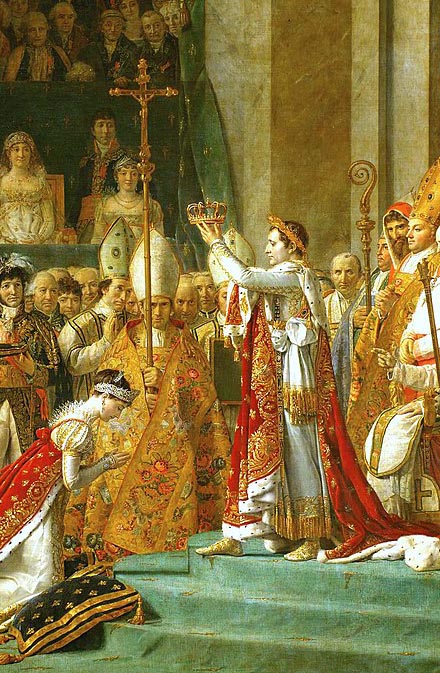
REMEMBER!
Improvisation is alive. The format should live and breathe with the performers and audience. Be open to exploration and the experiences that the format gathers so that you can create a better format.
What are the skills needed in your format? How does the format exist in the hands of differently skilled performers? Is the audience engaged (sometimes watch them – not the show)? Be brave and take out the clever bits that aren’t needed.
At the core, a good format can help on those nights when the Impro gods have abandoned you. A weak format, however, trains bad habits and limits your strengths when the format supersedes actual improvisation.
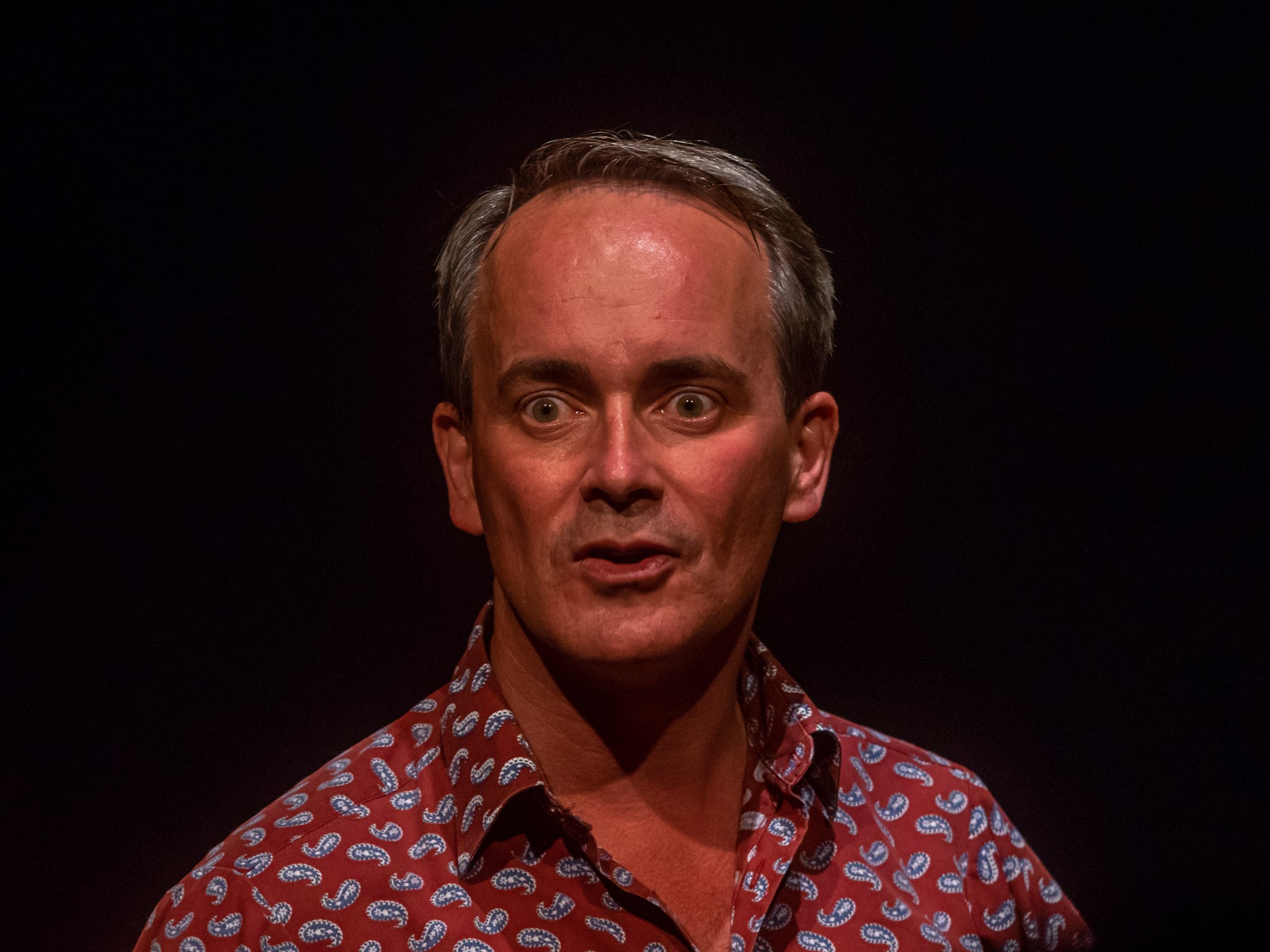




0 Comments